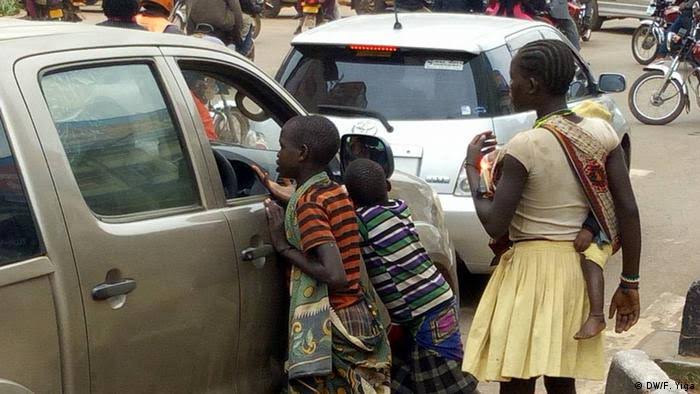Horrifying domestic violence spells doom for street children

DAR ES SALAAM: TORTURE, mistreatment, and absence of motherly kindness have not been widely addressed as the challenges that force children to run away from their homes.
Marital disputes, deaths of mothers, and divorces can also join the bandwagon as causes of children’s woes.
“ I ran away from home to live on the streets and later came to Dar es Salaam as a step towards finding a better life, but when I entered, I encountered all kinds of violence, the worst of which was being raped(to be defiled) by my elders. This hurts me so much,” recounts Benjamini (12), not his real name.
He says what drove him from his home in the Morogoro region was after he encountered severe torture from his aunt, who was raising him after his parents separated and each moved to another region, a place he did not know.
“I could not bear the beatings and being deprived of food; the torture was so much that I decided to go and find a safe place to live, but while I was there, there were all kinds of torture and violence. One day, when they saw me as a stranger, an elder forcibly entered me. I had nothing to do or to complain. I was left crying in pain. I moved to the area, which was Ubungo, and I went to Mwenge, where the lights were on,” he explains.
Benjamin is among the many street children who face extreme violence and danger.
According to the Ministry of Social Development, Gender,Women and Special groups, Dar es Salaam region leads in the number of children living on the streets and working after fleeing their families due to marital conflicts.
The following regions with the largest number of such children are Mwanza, Dodoma, Mbeya, Arusha and Iringa.
In addition, the regions that contribute to these children fleeing their families and entering the city are Kagera, Geita, Kigoma, Dodoma, Mwanza, and Shinyanga.
The ministry’s statistics show that between July 2024 and March this year 8,372 such children were rescued and empowered by being provided with various services.
Of these children, 1,056 are being kept in safe homes, 86 with trusted caregivers, and the rest are living with their families.
More than 1,346 of the rescued children were provided with school supplies and other necessities, 43 were sent to vocational colleges, 27 have graduated and two have done volunteer work in old age homes.
Between July and December 2024, 27,479 survivors were found, of which 50,040 children and 12,439 adults were provided with services at gender and child desks.
However, the study revealed the existence of 16,095 marital conflicts in the country, some of which have contributed to these children fleeing to the streets and living in difficult circumstances, working to earn a living and livelihood.
The ministry says the conflicts have been addressed through social welfare offices in the country for the period July 2024 to March 2025, a move that will reduce the number of children entering the streets.
James Yusta is a young man who has lived on the streets for about 23 years after fleeing to the streets at the age of seven to escape being killed by his uncle, who did not want him to inherit his late mother’s property.
James, who was born in Arusha, was raised by a Catholic nun after his biological mother threw him into a garbage dump, the reason for which is still unknown today.
While on the streets at that time, he went through many hardships that instead of breaking his heart, he continued to give himself hope, including beatings, surviving being sodomize, having things stolen, being drenched in rain and other hardships.
“I still had goals to succeed so I abstained from drug use while working hard and finally managed to get money to rent a room, but it was not easy.
After a day of moving, he says he managed to get a good job while continuing to fight for his dreams of starting an institution to help children living and working on the streets.
“I thank God without him I would not have gotten where I am today. I have my institution called James Foundation that helps these children, and I have already returned 150 children to their families, and this is because of knowing the suffering these children go through on the streets,” says James.
Among the things he mentioned as unforgettable pain for street children is that of a child named Rashid, aged 11, from Singida.
“This child was being abused by his stepfather, but when he told his mother that his father was doing this to him, his mother did not help him but beat him, and after the child saw that he was not getting any help, he ran to the streets of Singida.
“After three months, he came to Dar es Salaam, and when I met him, I asked him and wanted to take him back to their home, but he refused to be taken back.
He says after questioning him a lot, why he didn’t want to go back, he told him about his stepfather’s tragedy, and I took him to Sinza Palestine Hospital.
“When I got to Sinza Palestine Hospital, they referred me to Mwananyamala Hospital, where I will get further examination and treatment, and there is a legal window. When I actually went, I found welfare officers, and we got together, and the child was tested, and indeed the tests showed that he was being subjected to sodomy.
He explains that after that, they opened a case and followed it up, but sadly, the child Rashidi died after being hit by a car.
“That hurt me a lot because the turmoil has made his life end early. After tracking down his relatives, they did not show up, so he was buried by the Municipality. However, after sharing the photo on social media, his relatives came forward and came to Dar es Salaam, and I showed them the grave.
According to James, many children who run in the street he interviews, said they are running away from beatings and being denied food by their parents or guardians.
“If they tell me it’s a beating, I think about it from both sides. Maybe the child is naughty, even to listen to what he is being taught or is being abused, and I observe each one’s behavior and then advise them and teach them how to live with their parents
“Most of them agree to return home and change, and I have succeeded in returning 150 children to their parents in the regions of Mbeya, Mwanza, Arusha, Dodoma, Iringa, Kilimanjaro, and other regions.
James tells the story of a child who ran away from his parents due to severe punishment. “He was sent to the store by his mother to buy rice, but he accidentally tripped and spilled it, so he never returned home.
“He once witnessed his sister being burned by her mother after accidentally spilling flour, so out of fear, he went to live on the street. He came to Dar es Salaam three days later. I met him and he told me about the tragedy. Welfare officers had to find the mother, and after talking to her, the child was sent back to school.
James tells the story of how he started living on the street at the age of seven and lived on the street for 23 years after surviving the death of his uncle, after his foster mother died.
“I know everything on the street, a child is received with all kinds of cruelty, such as beatings, molestation, stripping, having your things taken away, the night becomes very painful. And unfortunately, society looks at them with a negative eye; many think they are undisciplined, but they do not know that children live on the streets due to a lack of good upbringing.
He says all children have a family and not just a father and mother; it is very wide. Children should be raised by relatives, if the biological father does bad things to them, they go to an uncle, grandfather, aunt, or others.
He further explains that religious and government leaders have a very big role in preventing children from living on the streets,
“Imagine a child from Singida comes to Dar, no one asks him, and many have negative thoughts. If society is given education on good upbringing, children living on the streets will not exist.
ALSO READ: Women encouraged to pursue legal action against GBV
He says he has now written a book called “The Voice of the Street Child,” which is being reviewed by educational institutions to be included in education systems as part of the curriculum as he has described many testimonies of street children and how to help them through good parenting education.
On August 25, 2025, the Minister for Community Development, Gender, Women and Special Groups Dr Doroth Gwajima launched a project to help children living and working on the streets known as Children in street situation (CiSS) which will be implemented in the regions of Dar Es Salaam, Mwanza and Dodoma to reduce them, providing them with education, knowledge and various skills for children who used to live on the streets.
She says the government has taken a firm stance to ensure that no child is left behind and that every child, regardless of their background or environment, enjoys the right to be protected and have the opportunity to reach their full potential.
She notes that street children represent one of the most vulnerable groups in society, facing daily risks that can affect their safety, health, education, and well-being, so the project will support government efforts to help them.
“I commend SOS Children’s Villages International and its partners for their vision and commitment through the CiSS project. This project shows how coordinated rescue, rehabilitation, family reintegration, and inclusion can bring new hope to children.
She says the government has made the protection of street children a national priority and is in the process of developing a national action plan to end the challenge of street children, which will serve as a comprehensive framework for all stakeholders.
Thus, the contribution of professional stakeholders and practical experience has been crucial in ensuring that this plan is based on reality and innovative solutions.





